Filter by
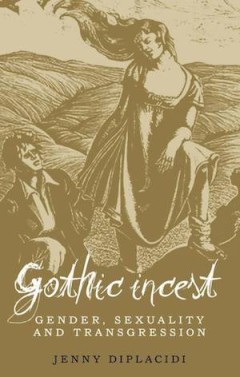
Gothic incest : Gender, sexuality and transgression
The first full-length study of incest in the Gothic genre, this book argues that Gothic writers resisted the power structures of their society through incestuous desires. It provides interdisciplinary readings of incest within father-daughter, sibling, mother-son, cousin and uncle-niece relationships in texts by authors including Emily Brontë, Eliza Parsons, Ann Radcliffe and Eleanor Sleath.…
- Edition
- -
- ISBN/ISSN
- 9781526107558
- Collation
- 304 halaman
- Series Title
- -
- Call Number
- 800 DIP g
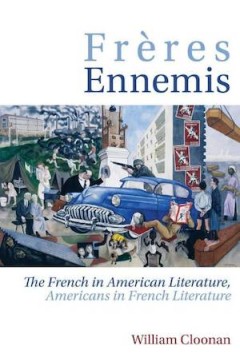
Frères Ennemis : The French in American Literature, Americans in French Lite…
Frères Ennemis focuses on Franco-American tensions as portrayed in works of literature. An Introduction is followed by nine chapters, each focused on a French or American literary text which shows the evolution/devolution of the relations between the two nations at a particular point in time. While the heart of the analysis consists of close textual readings, social, cultural and political con…
- Edition
- -
- ISBN/ISSN
- 9781786941329
- Collation
- -
- Series Title
- -
- Call Number
- 800 CLO f
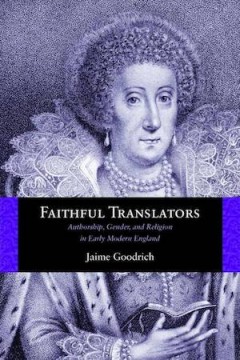
Faithful Translators : Authorship, Gender, and Religion in Early Modern England
With Faithful Translators Jaime Goodrich offers the first in-depth examination of women's devotional translations and of religious translations in general within early modern England. Placing female translators such as Queen Elizabeth I and Mary Sidney Herbert, Countess of Pembroke, alongside their male counterparts, such as Sir Thomas More and Sir Philip Sidney, Goodrich argues that both male …
- Edition
- -
- ISBN/ISSN
- 9780810129696
- Collation
- -
- Series Title
- Rethinking the Early Modern
- Call Number
- 400 GOO f
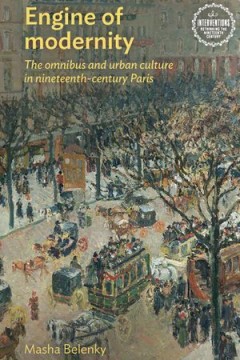
Engine of modernity : The omnibus and urban culture in nineteenth-century Paris
"Engine of Modernity: The Omnibus and Urban Culture in Nineteenth-Century Paris" examines the connection between public transportation and popular culture in nineteenth-century Paris through a focus on the omnibus - a horse-drawn vehicle for mass urban transport which enabled contact across lines of class and gender. A major advancement in urban locomotion, the omnibus generated innovations in …
- Edition
- -
- ISBN/ISSN
- 9781526138590
- Collation
- 200 halaman
- Series Title
- Interventions: Rethinking the Nineteenth Century
- Call Number
- 306 BEL e

Christoph Martin Wieland as the Originator of Modern Travesty in German Liter…
In this study the extent to which Wieland contributed to the literary genre of the travesty is established, the poet's approach to his sources as well as the nature and duality of his innovations are investigated, and the level and distribution of his travesties in relationship to the sum total of his literary work in general is appraised.
- Edition
- -
- ISBN/ISSN
- -
- Collation
- -
- Series Title
- -
- Call Number
- -

Charting Literary Urban Studies Texts as Models of and for the City
Guided by the multifaceted relations between city and text, Charting Literary Urban Studies: Texts as Models of and for the City attempts to chart the burgeoning field of literary urban studies by outlining how texts in varying degrees function as both representations of the city and as blueprints for its future development. The study addresses questions such as these: How do literary texts rep…
- Edition
- -
- ISBN/ISSN
- -
- Collation
- -
- Series Title
- -
- Call Number
- -
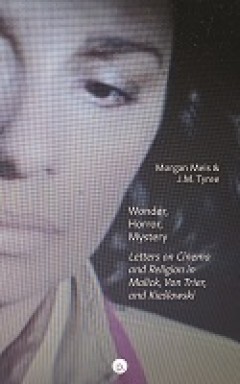
Wonder, Horror, Mystery
Wonder, Horror, Mystery is a dialogue between two friends, both notable arts critics, that takes the form of a series of letters about movies and religion. One of the friends, J.M. Tyree, is a film critic, creative writer, and agnostic, while the other, Morgan Meis, is a philosophy PhD, art critic, and practicing Catholic. The question of cinema is raised here in a spirit of friendly friction t…
- Edition
- -
- ISBN/ISSN
- 9781685710095
- Collation
- ScholarLed
- Series Title
- -
- Call Number
- -
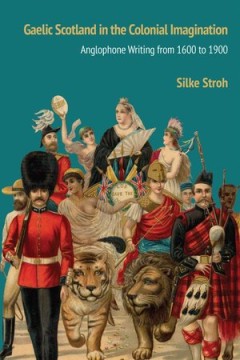
Gaelic Scotland in the Colonial Imagination : Anglophone Writing From 1600 to…
Can Scotland be considered an English colony? Is its experience and literature comparable to that of overseas postcolonial countries? Or are such comparisons no more than victimology to mask Scottish complicity in the British Empire and justify nationalism? These questions have been heatedly debated in the aftermath of the 2014 referendum on independence and amid a continuing campaign for more …
- Edition
- -
- ISBN/ISSN
- 9780810134034
- Collation
- -
- Series Title
- -
- Call Number
- 800 STR g
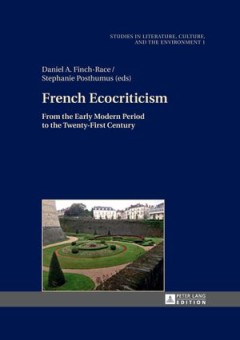
French Ecocriticism : From the Early Modern Period to the Twenty-First Century
This book expounds fruitful ways of analysing matters of ecology, environments, nature, and the non-human world in a broad spectrum of material in French. Scholars from Canada, France, Great Britain, Spain, and the United States examine the work of writers and thinkers including Michel de Montaigne, Victor Hugo, Émile Zola, Arthur Rimbaud, Marguerite Yourcenar, Gilbert Simondon, Michel Serres,…
- Edition
- -
- ISBN/ISSN
- 9783631673454
- Collation
- 296 halaman
- Series Title
- -
- Call Number
- 800 FRE
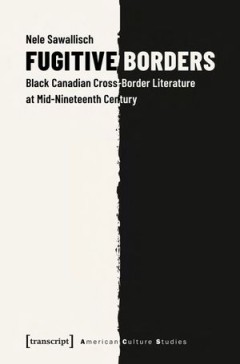
Fugitive Borders Black Canadian Cross-Border Literature at Mid-Nineteenth Ce…
Fugitive Borders explores a new archive of 19th-century autobiographical writing by black authors in North America. For that purpose, Nele Sawallisch examines four different texts written by formerly enslaved men in the 1850s that emerged in or around the historical region of Canada West (now known as Ontario) and that defy the genre conventions of the classic slave narrative. Instead, these te…
- Edition
- -
- ISBN/ISSN
- 9783839445020
- Collation
- -
- Series Title
- American Culture Studies
- Call Number
- -
 Computer Science, Information & General Works
Computer Science, Information & General Works  Philosophy & Psychology
Philosophy & Psychology  Religion
Religion  Social Sciences
Social Sciences  Language
Language  Pure Science
Pure Science  Applied Sciences
Applied Sciences  Art & Recreation
Art & Recreation  Literature
Literature  History & Geography
History & Geography